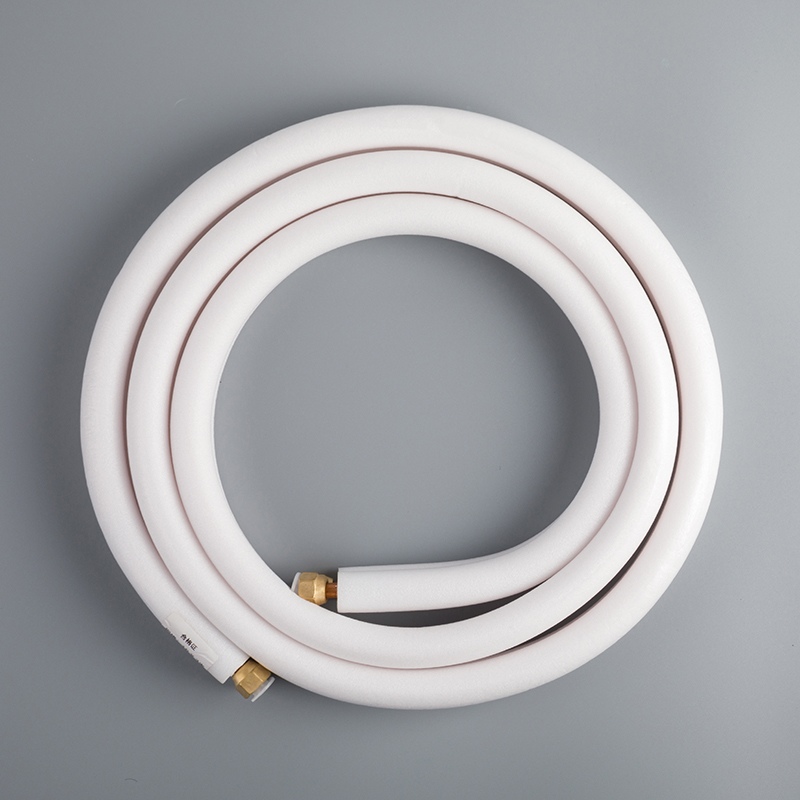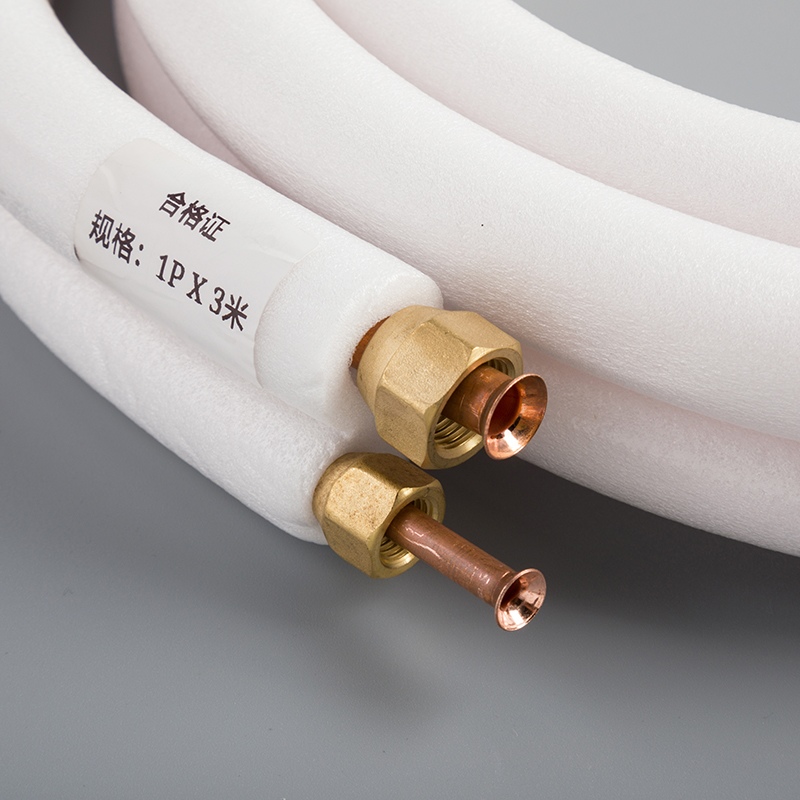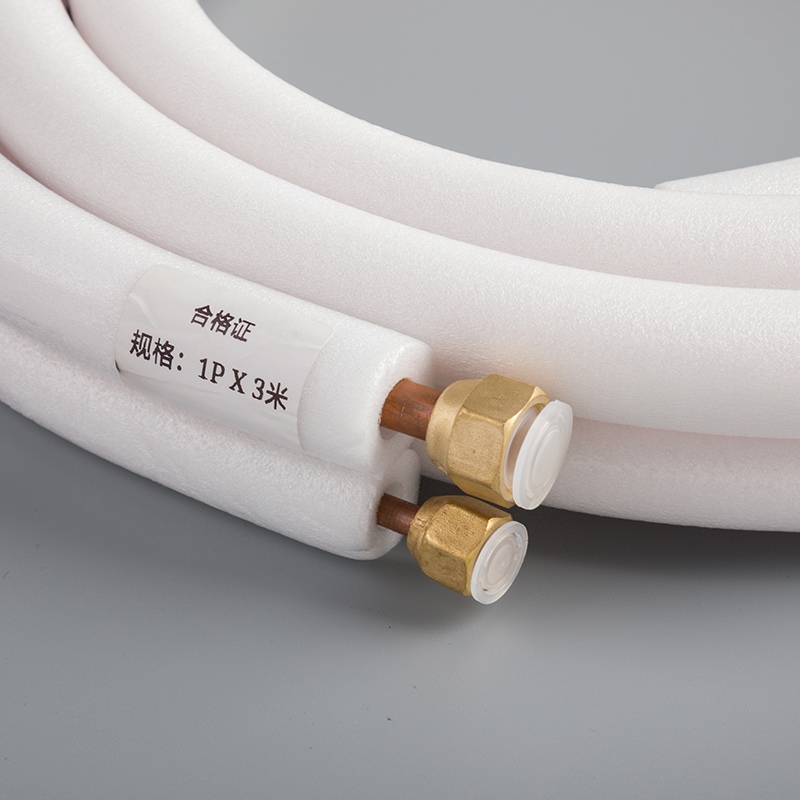10 Revolutionary Quality Assurance Techniques for Copper Pipe Coils

Write an in-depth review on the modern quality assurance techniques for 1/4 3/8 twin copper pipe coils. Copper piping, renowned for its corrosion resistance and durability, has been a staple in the United States since the 1960s. Its longevity and cleanliness over decades make it a preferred choice for various applications, from electrical wiring to industrial machinery. The Quality Control Order for Copper Products underscores the necessity of maintaining high manufacturing standards to prevent sub-standard imports into India. Ensuring top-notch quality is paramount, given copper's widespread use across industries.
Advanced Analytical Techniques

Copper, a versatile material used in various industries, requires meticulous quality assurance techniques to ensure its reliability and performance. Hybrid Approach is a cutting-edge strategy that combines traditional methodologies with modern technologies to enhance the assessment process. By integrating Rule-Based Techniques and Machine Learning Techniques, manufacturers can achieve a comprehensive analysis of copper pipe coils' quality.
The significance of maintaining high standards in copper production is highlighted by the Assay Standards set at 99.95%. This stringent requirement guarantees the purity and integrity of the copper material, crucial for its functionality across different applications. Implementing this standard in Quality Control processes ensures that only top-grade copper pipe coils are distributed for industrial use.
In a recent study titled 'Quality Control Orders for Copper Products,' it was emphasized that copper's properties make it an indispensable component in electrical wiring, plumbing systems, industrial machinery, and construction materials. The study underscores the need for precise quality assurance measures to uphold the reliability of copper products.
According to Ken's Plumbing Blog's publication 'Copper Piping: What You Need to Know,' copper exhibits sensitivity to specific water types, varying quality levels, pressure susceptibility, and resistance to bacteria. These characteristics further emphasize the critical role of advanced analytical techniques in ensuring the exceptional quality of 1/4 3/8 twin copper pipe coils.
By adhering to these revolutionary quality assurance techniques, manufacturers can guarantee the durability and efficiency of copper pipe coils across diverse industrial sectors. The integration of hybrid approaches and stringent assay standards not only elevates product quality but also establishes trust among consumers regarding the reliability of copper-based products.
NaF Pellet Treatment
NaF Pellet Treatment is a crucial step in the quality assurance process for 1/4 3/8 twin copper pipe coils. This innovative technique involves the use of pellets containing Sodium Fluoride (NaF) to facilitate the removal of Hydrogen Fluoride (HF) from the copper material before it is discharged into the exhaust system.
HF Removal
The HF Removal process begins with the introduction of NaF pellets into the system, where they interact with the copper pipe coils. Through a carefully designed Process Description, these pellets effectively bind with HF present in the material, neutralizing its corrosive properties and ensuring the purity of the copper. This meticulous procedure guarantees that only high-quality copper pipe coils free from harmful contaminants are produced.
Process Description
Introduction of NaF pellets into the system
Interaction between NaF and copper pipe coils
Binding process to neutralize HF
Ensuring purity and quality of copper material
Benefits
The utilization of NaF Pellet Treatment offers numerous advantages to manufacturers and end-users alike. By effectively removing HF from the copper material, this technique enhances the longevity and performance of 1/4 3/8 twin copper pipe coils. Some notable Benefits include:
Increased durability and corrosion resistance of copper products.
Enhanced reliability for various industrial applications.
Improved safety standards by eliminating harmful contaminants.
Compliance with stringent quality control measures for superior product quality.
Environmental Impact
In addition to its direct benefits on product quality, NaF Pellet Treatment also contributes positively to environmental sustainability efforts within manufacturing processes. The efficient removal of HF results in a significant Reduction of Harmful Emissions, minimizing the ecological footprint associated with copper production. Moreover, this technique ensures strict Compliance with Regulations governing emissions and waste disposal, aligning manufacturing practices with global environmental standards.
Reduction of Harmful Emissions
Minimization of ecological impact through emission reduction
Contribution to sustainable manufacturing practices
Compliance with Regulations
Adherence to stringent environmental guidelines
Responsible waste management practices
External Quality Assurance Committees
When it comes to ensuring the impeccable quality of 1/4 3/8 twin copper pipe coils, External Quality Assurance Committees play a pivotal role in upholding industry standards and fostering continuous improvement. These committees serve as independent entities that conduct Independent Reviews of manufacturing processes and product quality to guarantee adherence to established benchmarks.
Role and Importance
The primary function of External Quality Assurance Committees lies in providing unbiased assessments of production practices and output quality. Through rigorous evaluations and meticulous inspections, these committees offer valuable insights into areas that require enhancement or modification. By conducting Independent Reviews, they contribute to the overall credibility and reliability of the quality assurance process for 1/4 3/8 twin copper pipe coils.
Independent Reviews
Evaluation of manufacturing processes
Assessment of product quality
Identification of areas for improvement
Contribution to credibility and reliability
Recommendations Implementation
Upon completion of their assessments, External Quality Assurance Committees formulate actionable recommendations aimed at optimizing production efficiency and elevating product quality. These recommendations are meticulously crafted based on thorough analyses and comprehensive evaluations, ensuring that they are tailored to address specific areas of improvement effectively.
Continuous Improvement
In the realm of quality assurance for 1/4 3/8 twin copper pipe coils, Continuous Improvement is a fundamental principle upheld by manufacturers seeking excellence in their processes. By establishing robust Feedback Loops, companies can gather valuable insights from external assessments and internal evaluations to drive iterative enhancements across all facets of production.
Feedback Loops
Collection of insights from assessments
Integration of feedback into process optimization
Iterative improvements based on evaluation results
Enhancement across all production facets
Industry Best Practices
To remain at the forefront of innovation and quality excellence, manufacturers must embrace Industry Best Practices endorsed by reputable external bodies. These practices encompass a range of methodologies, techniques, and standards that have been proven effective in enhancing product quality, streamlining processes, and fostering continuous advancement within the industry.
By collaborating with External Quality Assurance Committees and embracing a culture of continuous improvement guided by industry best practices, manufacturers can fortify their commitment to delivering top-tier 1/4 3/8 twin copper pipe coils that meet stringent quality standards while driving innovation and excellence in the field.
Physical Quality Control Measures

Structural Assessments
Depth and Height Measurements
In the evaluation of 1/4 3/8 twin copper pipe coils, depth and height measurements play a crucial role in determining the structural integrity of the coils. By precisely measuring the dimensions, manufacturers can ensure that the coils meet the required specifications for various industrial applications:
Measure the depth of the copper pipe coils to verify their compliance with industry standards.
Assess the height of the coils to guarantee optimal performance and functionality in different settings.
Ensure that each coil meets specific dimensional requirements to maintain consistency and quality.
Total Weight and Thickness
The total weight and thickness of 1/4 3/8 twin copper pipe coils are essential indicators of their durability and reliability. Manufacturers employ advanced techniques to measure these parameters accurately, ensuring that each coil meets stringent quality control standards:
Weigh each coil meticulously to determine its total weight and assess its material composition.
Measure the thickness of the copper material with precision to confirm its structural robustness.
Adhere to established guidelines for weight and thickness measurements to uphold product quality.
Residual Analysis
Identifying Defects
Conducting thorough residual analysis is imperative in identifying any defects or irregularities present in 1/4 3/8 twin copper pipe coils. By scrutinizing residual patterns, manufacturers can pinpoint potential flaws and take corrective measures promptly:
Analyze residual mounds, rivulets, and ditches on the surface of the coils to detect any anomalies.
Identify deviations from standard residual patterns that may indicate underlying defects in the material.
Implement proactive measures based on defect identification to enhance product quality.
Ensuring Consistency
Ensuring consistency across all aspects of 1/4 3/8 twin copper pipe coil production is paramount for maintaining high-quality standards. Manufacturers focus on achieving uniformity in various elements to guarantee product reliability and performance:
Monitor production processes closely to maintain consistent quality throughout manufacturing.
Implement standardized procedures for assessing residual patterns to uphold uniformity across all coils.
Emphasize consistency as a core principle in quality control measures for sustainable product excellence.
By prioritizing structural assessments, total weight, thickness measurements, residual analysis, defect identification, and consistency maintenance, manufacturers can elevate the overall quality assurance process for 1/4 3/8 twin copper pipe coils while meeting industry demands effectively.
Implementing Quality Control Orders (QCO) is vital for ensuring consumer safety, enhancing manufacturing quality standards, and preventing the influx of sub-standard products into India.
The Department for Promotion of Industry and Internal Trade (DPIIT) aims to establish a robust quality control regime to elevate manufacturing standards and bolster the reputation of 'Made in India' goods.
Notifying Quality Control Orders (QCOs) is instrumental in improving domestically manufactured products, combating unfair trade practices, and safeguarding human, animal, plant health, and the environment.
Prime Minister Narendra Modi underscores the significance of producing high-quality goods as a tribute to 'Aatmanirbhar Bharat' values and as a catalyst for global prosperity.
See Also
Best Practices for Maintaining Copper Pipe Coils
The Definitive Manual on Contemporary Copper Pipe Coil Methods
Simple Solutions for Copper Pipe Coil Issues


